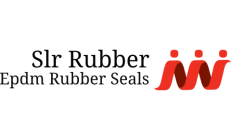EPDM Rubber Seals in the Factory: Enhancing Performance and Efficiency
In the bustling heart of modern manufacturing, factories rely on a plethora of components, materials, and technologies to ensure seamless operations. Among these essential elements, EPDM (Ethylene Propylene Diene Monomer) rubber seals stand out as versatile and indispensable assets, contributing significantly to the overall efficiency, safety, and longevity of factory processes. This extensive description will delve deeply into the vital role that EPDM rubber seals play within a factory setting, encompassing their composition, diverse applications, advantages, quality considerations, and the economic impact they have on industrial operations.
Composition and Characteristics:
EPDM rubber seals, composed primarily of ethylene, propylene, and diene monomer units, are engineered to withstand the rigorous demands of factory environments. Their inherent properties make them exceptionally suited for various functions within the factory ecosystem:
- Temperature Resilience: Factory settings often involve extreme temperature fluctuations, from scorching heat generated by machinery to frigid cold storage areas. EPDM rubber seals exhibit outstanding resistance to temperature extremes, retaining their elasticity and sealing integrity even under duress.
- Chemical Resistance: Factories frequently handle an array of chemicals, oils, and solvents in their processes. EPDM seals are renowned for their chemical resistance, ensuring they maintain their structural integrity and sealing effectiveness when exposed to these substances.
- Durability and Longevity: The rigors of factory environments demand materials that can withstand constant wear and tear. EPDM rubber seals are known for their durability and longevity, reducing the need for frequent replacements and contributing to cost savings.
- UV and Weather Resistance: In factories with outdoor operations or large openings, EPDM rubber seals effectively shield against UV radiation and weathering, providing a robust barrier against the elements.
Applications in the Factory:
EPDM rubber seals find multifaceted applications across the factory landscape:
- Machinery and Equipment: EPDM seals are integral to the functioning of machinery, providing critical sealing solutions in hydraulic systems, pumps, and other mechanical components.
- Facility Maintenance: They play a vital role in building maintenance, sealing doors, windows, and roofs to prevent air and moisture infiltration, thus contributing to energy efficiency and occupant comfort.
- Piping and Plumbing: EPDM seals serve as reliable gaskets and O-rings in piping systems, ensuring leak-free connections in fluid transfer applications.
- Electrical Enclosures: EPDM seals are employed to protect sensitive electrical components from dust, moisture, and contaminants within electrical enclosures, guaranteeing their operational integrity.
- Conveyor Systems: In material handling and conveyor systems, EPDM rubber seals are employed to prevent spillage and contamination, enhancing the cleanliness and efficiency of production lines.
Advantages in the Factory Setting:
The utilization of EPDM rubber seals in factories provides numerous advantages:
- Reduced Downtime: Their durability and resistance to wear and tear minimize the need for frequent replacements and maintenance, reducing downtime and production interruptions.
- Improved Safety: Properly sealed machinery and equipment ensure safety by preventing leaks, minimizing the risk of accidents and injuries.
- Cost-Efficiency: EPDM rubber seals offer a cost-effective sealing solution, as their extended service life and resistance to environmental factors translate into long-term savings.
- Energy Efficiency: In facility maintenance applications, EPDM seals contribute to energy efficiency by maintaining temperature control and preventing energy loss through gaps and leaks.
Quality and Maintenance Considerations:
To maximize the benefits of EPDM rubber seals within the factory, several quality and maintenance considerations should be observed:
- Material Compatibility: Ensure that EPDM seals are compatible with the specific chemicals and substances they will encounter in your factory processes.
- Regular Inspection: Conduct routine inspections to identify signs of wear, damage, or degradation, replacing seals as necessary to maintain their effectiveness.
- Proper Lubrication: Lubricate EPDM seals with appropriate compounds to prolong their life and maintain their sealing properties.
- Installation Expertise: Ensure that seals are installed correctly to prevent misalignment or over-compression, which can affect their performance.
Economic Impact:
The utilization of EPDM rubber seals in a factory setting bears significant economic implications. While the initial investment in quality seals is essential, the long-term benefits are substantial. Reduced maintenance costs, minimized downtime, enhanced safety, and energy efficiency contribute to overall cost savings, improving the factory’s bottom line and competitive edge.
In conclusion, EPDM rubber seal are unsung heroes in the factory, quietly ensuring the smooth functioning of machinery, maintaining environmental control, and upholding safety standards. Their versatility, durability, and cost-effectiveness make them a cornerstone of modern manufacturing, underscoring their pivotal role in shaping the efficiency and success of factories worldwide. By recognizing and optimizing the potential of EPDM rubber seals within the factory environment, manufacturers can achieve greater operational reliability and economic sustainability in an ever-evolving industrial landscape.


